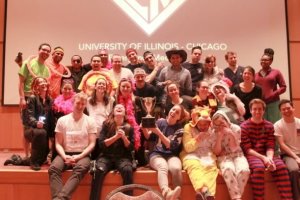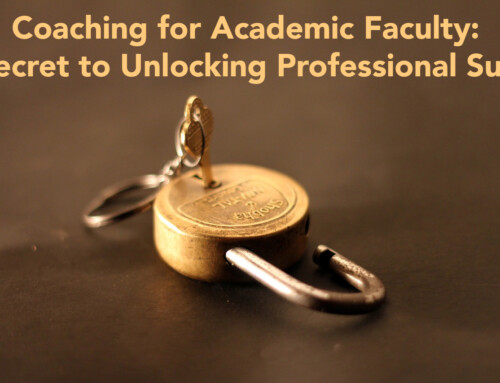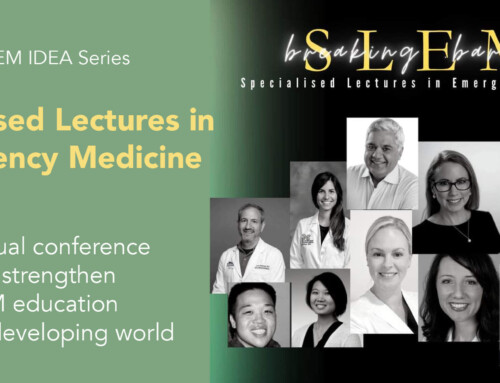Chief Resident Incubator, known colloquially as the CRincubator, which for the first time brought together in one virtual space chief residents from EM programs coast to coast. The inaugural class used this opportunity to meet with mentors in EM, discuss difficult situations of being chief residents, and collaborate on projects in areas of education, wellness/public health, leadership and administration. As the academic year comes to an end we want to highlight the top 10 projects that were accomplished by chiefs involved in the CRincubator.
Emergency Medicine Fact Board (University of California Irvine)
Not having enough time to study outside of the department + the ability of any EM resident to multitask = The Emergency Medicine Fact Board! We designed this continuous feed of short bullet-pointed facts in question/answer format to play on an iPad posted in our ED charting area. Question topics followed the curriculum block subject (i.e. cardiology, endocrinology, trauma). Each fact switches after 17 seconds, allowing a resident to do a bit of flashcard-style studying while in between patients. My co-residents have all expressed satisfaction with this mode of learning, and I’d love to see this board in other departments throughout the country.
Faculty Lightning Rounds (George Washington University)
Inspired by SAEM Lightning Oral presentations, Faculty Lightning Rounds was introduced into our Grand Rounds Curriculum 1-2 times a month. The purpose was two-fold. The first was to increase faculty involvement in our Grand Rounds, and the second was to incorporate a lively, informative, and interactive presentation style for residents to learn from and emulate. Faculty were given 15 minutes to discuss basic core content, and then supplement that information with pertinent studies and evidence based medicine. Most often, the content covered “hot topics” in EM. After presenting the information, they then opened the floor to an interactive portion with audience participation – allowing for comments and to field questions.
Wellness Committee (Hennepin County)
This year we created a Wellness Committee to actively combat signs of burnout that our residents were experiencing. This group focused on creating opportunities to improve resident wellness both inside and outside of the work place. To begin the year, they instituted a 24 hour resident retreat focusing on building relationships with co-residents and created a monthly Wellness Newsletter to highlight resident achievements, announce social outings, and post tips on improving resident wellness. Over the course of the year, they have kept tabs on symptoms of burnout through a monthly survey, the “Resident Wellness Vitals,” which has kept a finger on the pulse of residency morale through an anonymous form asking about depersonalization of patients, fatigue, frustration with patients of different backgrounds or cultures, sense of purpose, and compassion. They have instituted group yoga sessions to promote mindfulness and twice a year ask staff ED physicians to babysit a group of residents’ kids for an evening so that everyone can spend a night out together. Finally, they hosted a night of story-telling and reflection on the difficult aspects of EM, a night they called “Equilibrium: True Stories from the ED”, where residents and faculty shared stories of tough cases and how they dealt with them emotionally as well as talking about concrete ways to combat burnout while working in the ED.
Resident Olympics (University of Illinois Chicago)
 The UIC Resident Olympics was adapted from Dr. Adaira Chou’s original design, which she implemented at NYU. It consisted of 9 stations testing core EM content, such as EKGs, ABGs, splinting, rashes, and toxicology. Teams were encouraged to wear uniforms, come up with creative names (such as Lord Have MRSA), and put their brains together to overcome the mental feats set before them by attendings. The top 2 teams competed in a head to head impromptu lecture competition to win the trophy and be named the champions of the Brown Coat Cup!
The UIC Resident Olympics was adapted from Dr. Adaira Chou’s original design, which she implemented at NYU. It consisted of 9 stations testing core EM content, such as EKGs, ABGs, splinting, rashes, and toxicology. Teams were encouraged to wear uniforms, come up with creative names (such as Lord Have MRSA), and put their brains together to overcome the mental feats set before them by attendings. The top 2 teams competed in a head to head impromptu lecture competition to win the trophy and be named the champions of the Brown Coat Cup!
Ortho H'orderves (University of California in San Francisco at SFGH)
 Inspired by a needs assessment of our curriculum, the Ortho H’orderves project has been led by a fabulous senior resident, Dr. Luz Silverio, who has incorporated these cases into her own educational blog Silverio Lining. Every week at conference, residents either receive an email of an orthopedics case; answers are released at the end of conference. The “Ortho H’orderves” project features a visual prompt with a one liner about the case accompanied by a couple thought-provoking questions. For example, “1) What is the injury identified on the x-ray? 2) What are frequently associated injuries with this injury pattern? 3) What is the appropriate immediate and follow up management of this injury?” A follow-up email gives answers, including references and key pearls, often with amazing diagrams drawn by Dr. Silverio.
Inspired by a needs assessment of our curriculum, the Ortho H’orderves project has been led by a fabulous senior resident, Dr. Luz Silverio, who has incorporated these cases into her own educational blog Silverio Lining. Every week at conference, residents either receive an email of an orthopedics case; answers are released at the end of conference. The “Ortho H’orderves” project features a visual prompt with a one liner about the case accompanied by a couple thought-provoking questions. For example, “1) What is the injury identified on the x-ray? 2) What are frequently associated injuries with this injury pattern? 3) What is the appropriate immediate and follow up management of this injury?” A follow-up email gives answers, including references and key pearls, often with amazing diagrams drawn by Dr. Silverio.
Intern Curriculum (University of Chicago)
 EM Fundamentals is the online asynchronous content companion to our novel flipped-classroom intern curriculum at the University of Chicago. We use a combination of third-party FOAM, primary literature, and original content to guide learners through topics including true emergencies, common complaints, and essential skills (procedures). Follow us on Twitter! @EMFundamentals or visit EMFundamentals.blogspot.com
EM Fundamentals is the online asynchronous content companion to our novel flipped-classroom intern curriculum at the University of Chicago. We use a combination of third-party FOAM, primary literature, and original content to guide learners through topics including true emergencies, common complaints, and essential skills (procedures). Follow us on Twitter! @EMFundamentals or visit EMFundamentals.blogspot.com
EM Service Day (George Washington University)
 The EM residents at George Washington University have a yearly EM Service Day. Our goal is to give back to our local DC community outside of the clinical environment. This year we volunteered with Bread for the City, a local program that provides vulnerable residents of Washington, DC with food, clothing, medical care, and legal and social services. We worked outdoors at a fruit orchard maintained by Bread for the City and the fruits of our labor were distributed to clients through their food pantries.
The EM residents at George Washington University have a yearly EM Service Day. Our goal is to give back to our local DC community outside of the clinical environment. This year we volunteered with Bread for the City, a local program that provides vulnerable residents of Washington, DC with food, clothing, medical care, and legal and social services. We worked outdoors at a fruit orchard maintained by Bread for the City and the fruits of our labor were distributed to clients through their food pantries.
Real Time Lecture Evaluation (Icahn SOM at Mount Sinai)
With the goal to get more and better feedback for our presenters at EM conference, we have created a system we have called Real Time Lecture Evaluation (RETLE): A High Yield Feedback System for Academic Presentations. This system attempts to overcome the main problems we found when trying to get feedback: (1) Lack of response or low response rate and (2) poor quality of feedback when this was not obtained in real time. We designed and implemented a feedback system using Google Forms, and so collected responses come straight into a spreadsheet. The feedback form is sent via gmail with a link, that people in the audience can open immediately on their Smartphones and fill out in real time. This takes 10 seconds, and had yielded response rates of 60%- 90%.
Ask the Pros Q&A (Hennepin County)
This curricular innovation was implemented to help residents improve their ED management through a panel discussion with attending physicians in different sub-specialty fields, including Hand Orthopedics, ENT, Urology, etc. We wanted to have the residents hear directly from the sub-specialists about common pitfalls such as partial tendon injury evaluation and repair or complex auricular laceration repairs and get follow-up on patients that they had sent to the sub-specialty clinics after an ED visit. This session helped residents fine-tune their clinical practice and created a forum to ask sub-specialist questions about the subsequent outpatient management of patients.
Morning Report: Emergency Medicine (UTSW/Parkland Memorial)
 Residents in our program were asking for more time during conference for case discussion. Thus we started to collect interesting cases from our residency and converted them into short 5-10 minute video case presentations with key take home learning points and media (e.g. ECGs, X-Rays, ultrasound images, and physical exam findings) and uploading them online for residents to view at youtube.com/ajw119. This allowed everyone to learn from each other’s coolest cases and facilitate discussion about management on the discussion board.
Residents in our program were asking for more time during conference for case discussion. Thus we started to collect interesting cases from our residency and converted them into short 5-10 minute video case presentations with key take home learning points and media (e.g. ECGs, X-Rays, ultrasound images, and physical exam findings) and uploading them online for residents to view at youtube.com/ajw119. This allowed everyone to learn from each other’s coolest cases and facilitate discussion about management on the discussion board.
Honorable Mentions
[/fusion_builder_column]Monthly Emails (Brown University)
Interdisciplinary Website (Central Michigan Univ)
Coordination for Pope Visit (Cooper University)
Winter Retreats (Doctor’s Hospital)
New Call Back System (Drexel University)
Chief Resident Roles (Hackensack Univ)
Faculty Lecture Exchange (Jacobi/Montefiore)
Airway and Patient Safety (Jefferson University)
TEDx Style Grand Rounds (Loma Linda University)
Strategizing Staffing Models (Mayo Clinic)
Simulation Curricula (McMaster University)
Small Group Q&A Sessions (Sinai-Grace Hospital)
Conference Redesign (Stony Brook University)
Resident of the Month (UI Chicago)
Cost Analysis for Pediatric Appy (Univ of Michigan)
Resuscitation Review (UCSF-Fresno)
Landmark Articles List (Univ of Washington)
Personalized Intern Mentoring (York Hospital)

Alec Weir, MD
Department of Emergency Medicine
UT Southwestern/Parkland Hospital

Latest posts by Alec Weir, MD (see all)

Adaira Landry, MD, Ed.M
Assistant Program Director
Department of Emergency Medicine
Brigham and Women's Hospital

Latest posts by Adaira Landry, MD, Ed.M (see all)
- Reading from the Silver Linings Playbook: The ALiEM Connect Project - April 26, 2021
- All-EM Residency Graduation Extravaganza: Save the Date - June 5, 2020
- ALiEM Statement Against Racism - June 2, 2020



